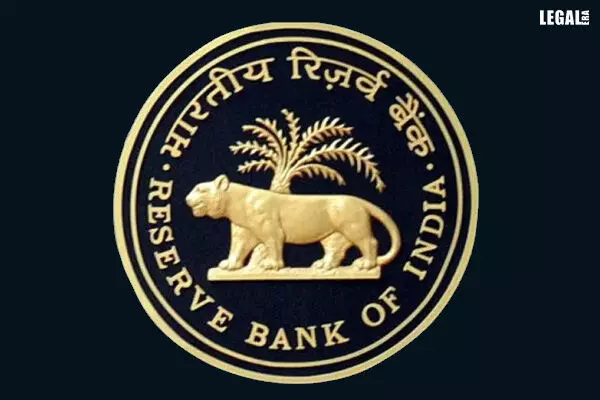- Home
- News
- Articles+
- Aerospace
- Artificial Intelligence
- Agriculture
- Alternate Dispute Resolution
- Arbitration & Mediation
- Banking and Finance
- Bankruptcy
- Book Review
- Bribery & Corruption
- Commercial Litigation
- Competition Law
- Conference Reports
- Consumer Products
- Contract
- Corporate Governance
- Corporate Law
- Covid-19
- Cryptocurrency
- Cybersecurity
- Data Protection
- Defence
- Digital Economy
- E-commerce
- Employment Law
- Energy and Natural Resources
- Entertainment and Sports Law
- Environmental Law
- Environmental, Social, and Governance
- Foreign Direct Investment
- Food and Beverage
- Gaming
- Health Care
- IBC Diaries
- In Focus
- Inclusion & Diversity
- Insurance Law
- Intellectual Property
- International Law
- IP & Tech Era
- Know the Law
- Labour Laws
- Law & Policy and Regulation
- Litigation
- Litigation Funding
- Manufacturing
- Mergers & Acquisitions
- NFTs
- Privacy
- Private Equity
- Project Finance
- Real Estate
- Risk and Compliance
- Student Corner
- Take On Board
- Tax
- Technology Media and Telecom
- Tributes
- Viewpoint
- Zoom In
- Law Firms
- In-House
- Rankings
- E-Magazine
- Legal Era TV
- Events
- Middle East
- Africa
- News
- Articles
- Aerospace
- Artificial Intelligence
- Agriculture
- Alternate Dispute Resolution
- Arbitration & Mediation
- Banking and Finance
- Bankruptcy
- Book Review
- Bribery & Corruption
- Commercial Litigation
- Competition Law
- Conference Reports
- Consumer Products
- Contract
- Corporate Governance
- Corporate Law
- Covid-19
- Cryptocurrency
- Cybersecurity
- Data Protection
- Defence
- Digital Economy
- E-commerce
- Employment Law
- Energy and Natural Resources
- Entertainment and Sports Law
- Environmental Law
- Environmental, Social, and Governance
- Foreign Direct Investment
- Food and Beverage
- Gaming
- Health Care
- IBC Diaries
- In Focus
- Inclusion & Diversity
- Insurance Law
- Intellectual Property
- International Law
- IP & Tech Era
- Know the Law
- Labour Laws
- Law & Policy and Regulation
- Litigation
- Litigation Funding
- Manufacturing
- Mergers & Acquisitions
- NFTs
- Privacy
- Private Equity
- Project Finance
- Real Estate
- Risk and Compliance
- Student Corner
- Take On Board
- Tax
- Technology Media and Telecom
- Tributes
- Viewpoint
- Zoom In
- Law Firms
- In-House
- Rankings
- E-Magazine
- Legal Era TV
- Events
- Middle East
- Africa
RBI Imposes Fines on Major Banks for Regulatory Violations

RBI Imposes Fines on Major Banks for Regulatory Violations
The Reserve Bank of India (RBI) on 25 September 2023, imposed fines on the State Bank of India, Indian Bank, Punjab & Sind Bank, and Fedbank Financial Services for breaches of regulatory norms.
In separate press statements, the RBI disclosed that it had imposed penalties of ₹1.3 crore on the State Bank of India (SBI), ₹1.62 crore on Indian Bank, ₹1 crore on Punjab & Sind Bank, and ₹8.80 lakh on Fedbank Financial Services.
The RBI imposed fines on SBI and Indian Bank due to their approval of a term loan to a corporation. This loan was provided in place of, or as a substitute for, the budgetary funds allocated for specific projects. The banks did so without conducting the necessary due diligence to assess the feasibility and financial viability of these projects to ensure that the revenue generated from these projects would be adequate to cover the debt servicing requirements.
Furthermore, the RBI found that SBI failed to comply with the intra-group exposure limit regulations. This was because SBI did not take into account the intra-day limit that had been granted to its affiliated entity when calculating its intra-group exposure limit.
Indian Bank incurred a fine because it permitted the continued operation of several accounts that had been opened using OTP-based e-KYC in a non-face-to-face manner, even beyond the one-year expiration period without conducting the necessary customer due diligence procedure. Additionally, Indian Bank opened numerous savings accounts in the name of customers who were ineligible to maintain a savings deposit account.
Likewise, Punjab & Sind Bank faced a penalty for not depositing the eligible amount into the Depositor Education and Awareness Fund within the timeframe specified under Section 26A of the Banking Regulation Act (BR Act), leading to the imposition of a monetary fine. In the case of Fedbank Financial Services, the fine was imposed because they delayed reporting a fraud incident to the RBI.



